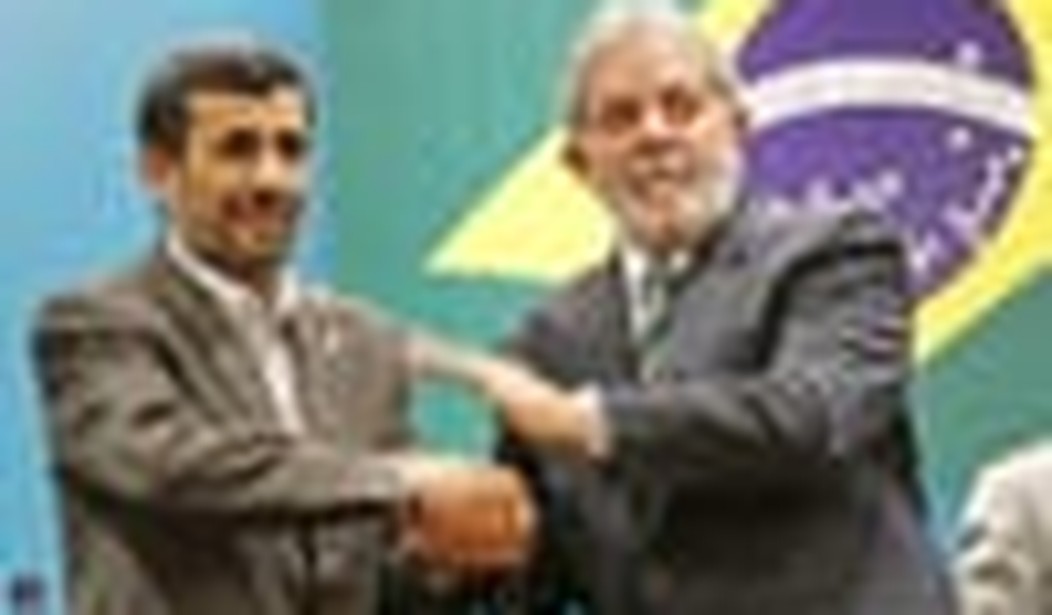The publication of an alleged Iranian document in Perfil, the Argentinian daily newspaper, has touched off an issue no American can ignore. The document claims that the governments of Argentina and Iran had reached an agreement to freeze the investigation into the 1994 AMIA (Asociación Mutual Israelita Argentina) bombing that killed 85 people — and that the two countries were discussing and considering trade agreements with an estimated value of $1.2 billion.
Argentina’s Foreign Minister Hector Timerman, who traveled to Israel on Wednesday, April 7, for a two-day visit, sidestepped the issue, raised by both the Israeli Foreign Ministry and journalists. The Israeli Foreign Ministry, which had considered canceling Timerman’s visit, asked Argentina for a clarification of the reports. Timerman met with Prime Minister Benjamin Netanyahu for 45 minutes during which time they discussed terrorism, the victims of the attacks, and how best to combat this deadly trend. Israeli spokesmen, meanwhile, made no specific comments on the matter.
Relations between Argentina and Iran were seriously damaged following the AMIA bombing. The disastrous police investigation carried out during the tenure of former president Carlos Menem was described by his successor, Nestor Kirchner, as a “national disgrace.”
Further inquiry led to the conclusion that there was prima facie evidence for the involvement of the Iranian Embassy, for which the Argentine government requested — and Interpol did issue — an arrest warrant for several Iranian authorities and one high ranking member of Lebanese Hezbollah said to be behind the plot. Since the issuance of that warrant, however, two of the individuals on that list have died or been killed.
In 2009, Menem, son of Syrian immigrants, and retired judge Juan José Galeano were indicted in federal court for alleged irregularities in the investigation into the AMIA attack. Also indicted were the ex-president’s brother, Munir Menem, former secretariat of state intelligence (SIDE) Hugo Anzorreguy, commissioner Jorge “Fino” Palacios, former deputy secretary of intelligence Juan Carlos Anchezar, and the retired commissioner Carlos Castañeda, accused of obstruction of justice.
In June of 2008, Ali Akbar Hashemi Rafsanjani and Mohsen Rezai, two of the Iranian officials whose arrest warrants Interpol issued, travelled to Saudi Arabia to attend a Muslim conference hosted by the Saudi government. The Saudi government, however, made no attempt to detain or arrest Ali Akbar Hashemi Rafsanjani or Mohsen Rezai during their visit to Saudi Arabia, and the two departed Saudi Arabia without incident.
A federal court in Argentina also issued an international arrest warrant for Samuel Salman al-Reda, a Colombian of Lebanese descent. Reda, who had lived in Buenos Aires until the day of the bombing, then disappeared. He is believed to be living in Lebanon with his Argentinian wife. According to state prosecutor Alberto Nisman, who headed the investigation, Reda was the link between Tehran and Hezbollah in the bombing plot.
Argentina’s government did approach the UN to reproach the Iranian government, though the two countries did continue to maintain diplomatic and trade relations, however cold and tenuous. What is certain is that Iran has long been trying to develop a policy of rapprochement with Latin American countries to try to garner support for itself in addressing the international sanctions. In the last three years, Ahmadinejad has made several trips to the region, particularly Venezuela and Brazil, and was visited by several Latin American presidents including Bolivia’s Evo Morales.
Brazil, under the leadership of Lula da Silva, supported Iran, but Tehran’s flippant attitude in the face of Brazil’s desire to gain prominence as a mediator in the Middle East seems to have become highly distasteful to Brazilian authorities. The chance to get away from Tehran and to once again get into the good graces of Washington came with the election of the new Brazilian president, Dilma Rousseff, who claims to believe in much more rigorous methods in dealings with Tehran; so far, however, there is no such evidence, given Rouseff’s newly strengthened alliance with China and Russia and her willing participation in the BRICS group conference in southern China this month.









Join the conversation as a VIP Member